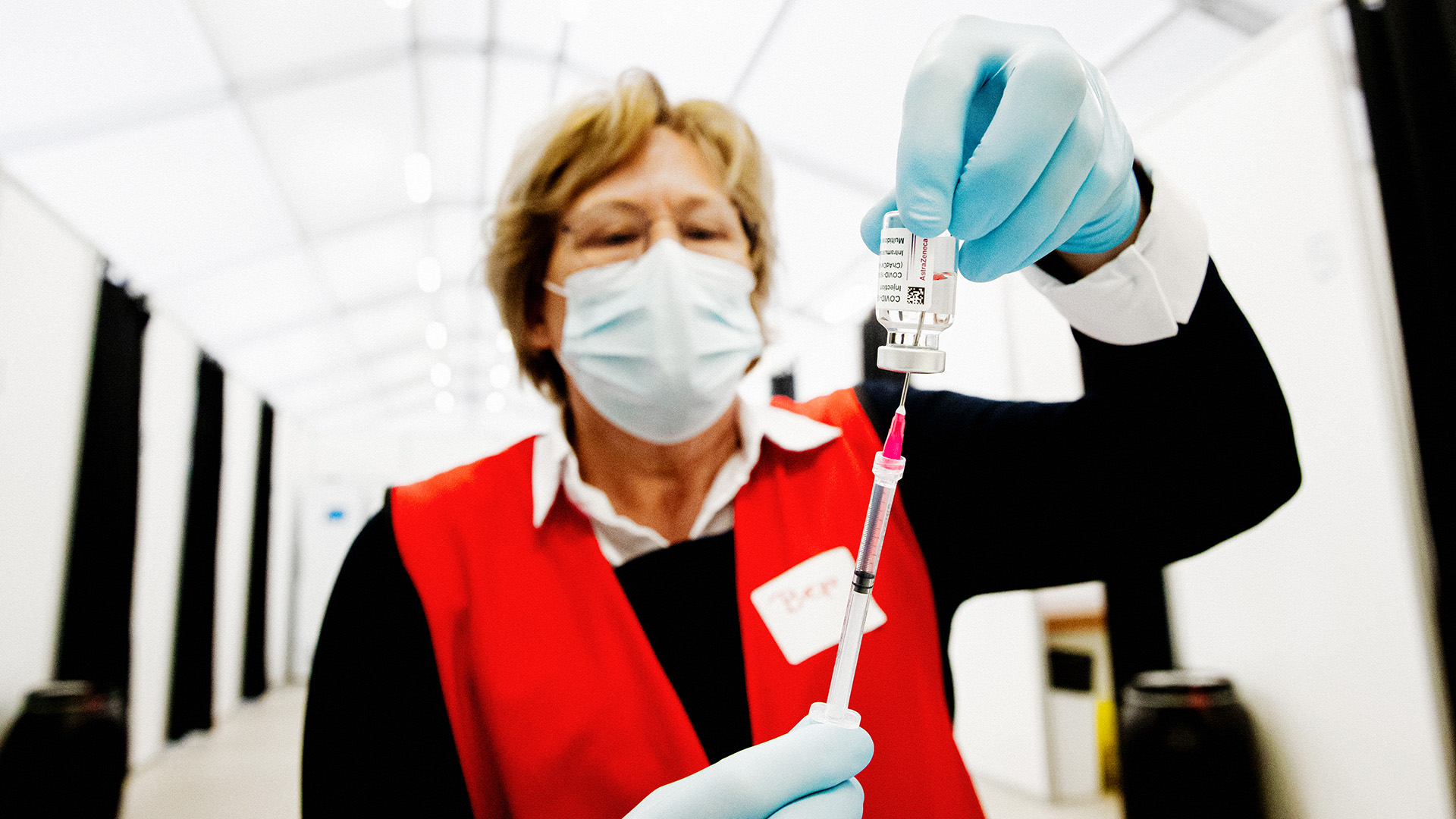Mixing and matching different vaccines seems to work
Combining different vaccines elicits strong immune responses, but some combinations appear to work better than others, a new study shows.

The news: In a preprint paper published on Monday, researchers reported that people who got a shot of the Oxford-AstraZeneca vaccine followed four weeks later by the Pfizer-BioNTech vaccine had strong immune responses—higher than those who got two doses of Oxford-AstraZeneca, and roughly comparable to those who received two doses of Pfizer-BioNTech.
That’s reassuring news for the countries that have already been mixing and matching. In Spain, for example, people under the age of 60 who received one dose of Oxford-AstraZeneca have been offered Pfizer as an alternative for their second dose over concerns about rare cases of blood clotting associated with the former vaccine. And this new data should give other countries flexibility in the face of fluctuating supplies. “Any of these schedules, I think could be argued, would be expected to be effective against covid-19,” says Matthew Snape, a pediatrician at the University of Oxford and chief investigator on the trial. But Snape isn’t ready to argue that mixing vaccines is preferable to the regimens that have been tested in large phase 3 studies. “I feel still feel that the default would be to stick with the vax schedules that we actually know work through direct evidence,” he adds.
The details: This data is part of Com-CoV, a study that includes more than 800 people over the age of 50 who were randomized to one of four groups. Two groups received the vaccines as they were tested: two doses of the same brand. The other two groups received one dose of each. The study was designed to test whether people who received a mixed regimen would fare worse than those who received two doses of the same vaccine. Com-CoV isn’t meant to test whether participants are protected from covid. Instead, the researchers assess how these regimens affect antibody and T cell responses.
A study published in May showed that combining these vaccines is safe, though mixed regimens did lead to greater side effects. In this paper, the researchers provide data on the immune response in 463 people who got their shots four weeks apart. The team is also testing a 12-week interval. All of the regimens seemed to prompt strong immune responses. The combination regimens prompted stronger responses than a double dose of Oxford-AstraZeneca. In fact, the group that received Oxford-AstraZeneca followed by Pfizer-BioNTech had antibody levels nine times higher than the group that got a double dose of Oxford-AstraZeneca. But a double dose of Pfizer-BioNTech outperformed every other regimen, including the mixed regimen that offered Pfizer-BioNTech first.
The caveats: In this study, two doses of the Oxford-AstraZeneca vaccine elicited the lowest antibody levels. But Snape points out that that study tested a four-week interval between doses. That’s not the way the vaccine is being administered. doses are typically spaced eight to 12 weeks apart. And studies suggest that even longer intervals might work better. In a new preprint researchers found the highest antibody levels with a delay of 45 weeks. That may be why the standard Oxford-AstraZeneca regimen appeared to elicit the weakest response.
What’s next: The team hopes to present data on the groups that had a 12-week gap between doses in the next month or so. And they’ll also be assessing the duration of the response and examining combinations involving two more vaccines: Moderna and Novavax. This data could help health officials decide which vaccines should be offered as a booster, if one is needed. “Based on what we’ve seen here, there is a suggestion that switching over to an RNA vaccine could actually have some benefits in terms of antibodies,” Snape says.
Deep Dive
Biotechnology and health
How scientists traced a mysterious covid case back to six toilets
When wastewater surveillance turns into a hunt for a single infected individual, the ethics get tricky.
An AI-driven “factory of drugs” claims to have hit a big milestone
Insilico is part of a wave of companies betting on AI as the "next amazing revolution" in biology
The quest to legitimize longevity medicine
Longevity clinics offer a mix of services that largely cater to the wealthy. Now there’s a push to establish their work as a credible medical field.
There is a new most expensive drug in the world. Price tag: $4.25 million
But will the latest gene therapy suffer the curse of the costliest drug?
Stay connected
Get the latest updates from
MIT Technology Review
Discover special offers, top stories, upcoming events, and more.